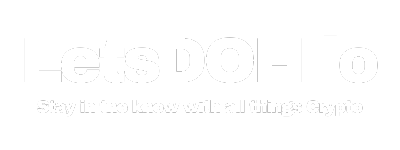-
The company used the permissioned, private blockchain of fintech firm SWIAT and the Bundesbank’s trigger solution for settlement.
-
The issuance was part of a European Central Bank’s trial to settle central bank money on blockchains.

02:15
Inside Trump’s Crypto Project; Ripple’s Upcoming Stablecoin To Launch in ‘Weeks’: Garlinghouse

01:03
Crypto Saw Lowest Monthly Losses to Hacks in August YTD: Immunefi

02:04
Judge Dismisses Market Manipulation Suit Against Elon Musk; Ryan Salame’s Plea Deal Saga

01:11
Breaking Down Bitcoin’s Selling Pressure
German industrial giant Siemens AG said Wednesday that it issued a 300 million euro ($330 million) digital bond on blockchain rails as part of a European Central Bank’s (ECB) trial.
Major German financial institutions BayernLB, DekaBank, DZ BANK, Helaba and Landesbank Baden-Württemberg (LBBW) invested in the bond. Deutsche Bank also participated facilitating the settlement process.
“Automated processing within a few minutes shows the enormous potential of this new technology and confirms our strategy of playing a leading role in continuously shaping the digital transformation,” said Peter Rathgeb, Corporate Treasurer of Siemens.
The latest transaction was settled via SWIAT, a private permissioned blockchain, the company said.
Siemens’ bond issuance is the latest example of traditional institutions exploring ways to put traditional financial instruments such as bonds, credit and funds on blockchain rails. The process, also known as tokenization of real-world assets (RWA), promises operational benefits such as faster and more transparent transaction settlements, lower costs and greater efficiency and transparency.
Last month, CoinDesk reported that KfW, the largest development bank in Germany, teamed up with Boerse Stuttgart Digital (BSD) in preparation for a digital bond issuance. Italy’s state-owned development bank Cassa Depositi e Prestiti SpA (CDP) and lender Intesa Sanpaolo also completed a bond issuance on Polygon in July. Both issuances were part of ECB trials.
Edited by Aoyon Ashraf.
Disclosure
Please note that our
and
do not sell my personal information
has been updated
.
CoinDesk is an
media outlet that covers the cryptocurrency industry. Its journalists abide by a
strict set of editorial policies.
In November 2023
by the Bullish group, owner of
a regulated, digital assets exchange. The Bullish group is majority-owned by
Block.one; both companies have
in a variety of blockchain and digital asset businesses and significant holdings of digital assets, including bitcoin.
CoinDesk operates as an independent subsidiary with an editorial committee to protect journalistic independence. CoinDesk employees, including journalists, may receive options in the Bullish group as part of their compensation.


:format(jpg)/s3.amazonaws.com/arc-authors/coindesk/8b1395a8-12af-4705-9fe5-b862b248250d.png)